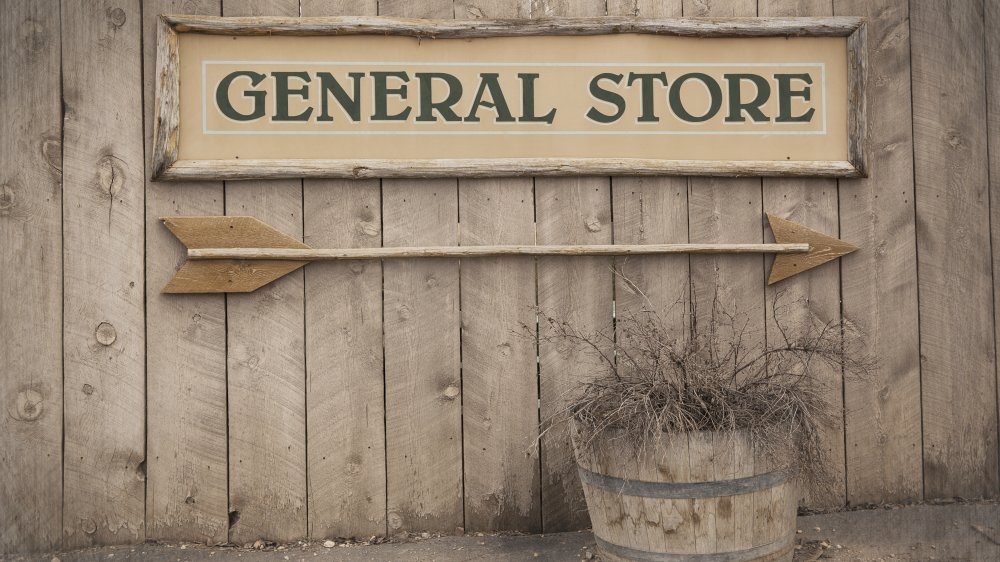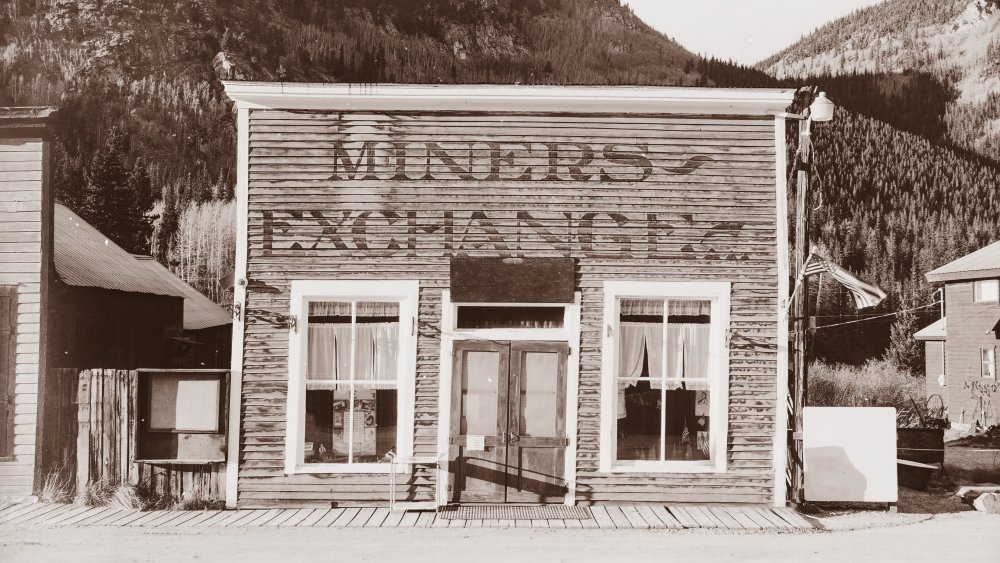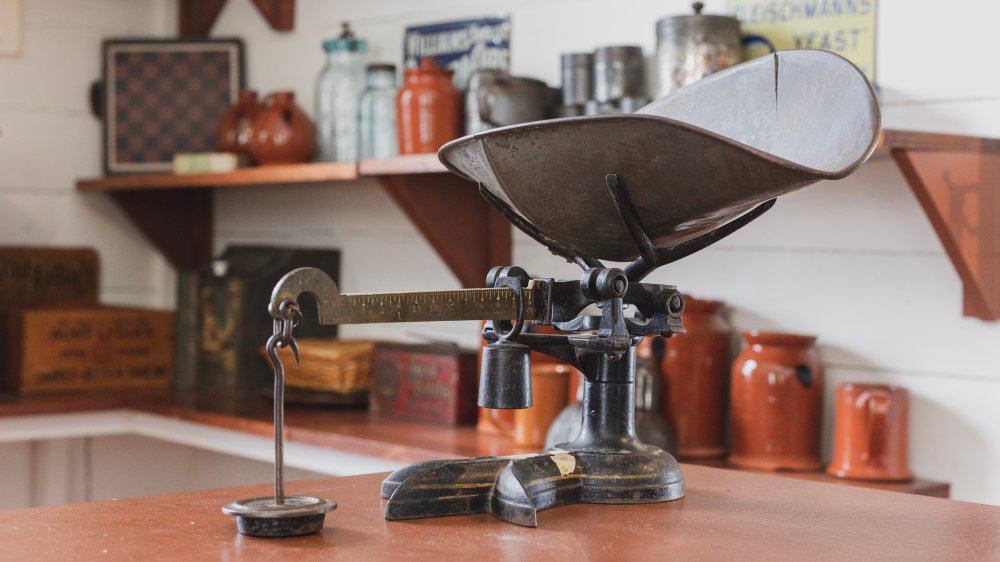What Would Be On The Shelves Of An Old West General Store?
Lots of ink (or its cyber equivalent) is being used to try to figure out what is happening to American retail. It doesn't seem that long ago that malls, those temples of goods for profit, were the new town pump, where people gathered, interacted, sampled, and bought stuff they may or may not have needed. ("But it was on sale!") Now malls are struggling to stay afloat, just as independent neighborhood Mom-and-Pop grocery stores tried, and failed, in the face of not markets, but supermarkets, back in the 1960s. Some malls are slowly becoming more and more vacant; some have been simply abandoned, as recorded by people like photographer Seph Lawless.
The fact is that American retail commerce has been shifting and changing since the days when blue beads passed for currency, as in St. Eustacius. It was never perfect, and it was never static. But there were moments that have become enshrined in the collective consciousness, whether actually experienced or not.
So it is with the General Store, particularly on the edge of the westward expansion of the 19th and early 20th Centuries. By and large, people moving west, particularly in the early days, tried — needed — to be self-sufficient. Get by as much as possible with as little as possible for as long as possible.
Storekeepers tried to stock a little bit of everything
Native tribes had been doing it for centuries. The arrival of Europeans meant the introduction of things like iron, and steel, and implements. Also blue beads. Trade. Cooking utensils. Weapons. Iron bands from barrels made nifty arrowheads. A steel knife lasted longer than one made of bone, or stone.
Not everyone was willing to get along wearing the same set of buckskins for as long as they lasted. In a very real sense, commerce represented culture, and prestige, and civilization. It meant access to a former life, in a society of relative safety and security.
The General Store was exactly that: general. It's hard to imagine today, though there are online companies that mimic the array of goods. Not that long ago someone might say, "If Sears doesn't have it, we don't need it," but those stores, part of growing communities of greater or lesser permanence, tried very hard to have a little bit of everything. How did they know? Demand. Supply. The usual. As Sherry Monahan, author of Taste of Tombstone, wrote for True West Magazine, "Most carried produce, canned goods, dried foods, spices, coffee, flour and anything food-related. Many sold gunpowder, coal oil and dynamite right alongside onions and oysters."
How we do business changes, then and now
A general store stocked basics for life: large quantities of flour (people did their own baking), sugar. Some canned goods, but not an overabundance; those were the days when people did their own canning, of their own food, raised on their own land.
Tools would have been important. Eventually there would have been divestment of services — hardware stores for, well, hardware; a drug store for medicinal needs; the Spangenberg Gun Shop in Tombstone. But at the beginning, the general store would have bolts of cloth, used for making your own clothes (cheaper and perhaps sturdier than anything you could buy), shoes, boots. Penny candy, for those with a sweet tooth. Coffee, purchased and ground on-site or mashed into brewable grounds with rocks out on the trail. Ammunition — gunpowder and lead; cartridges — was needed by everyone, regardless of their station in life. Molasses, for low-cost sweetening and flavoring; kerosene, for lanterns.
As far as that image of citizens (especially men) gathering around the pot-bellied stove and the cracker barrel — no doubt a general store also offered a place to fraternize, trade gossip, and enjoy one another's company. As the Allegany County Historical Society puts it, a store "was a gathering place as well as a commissary." And as Wyatt Earp told his biographer, Stuart Lake, "We had no YMCAs." Specifically, Wyatt was talking about all the time he spent in saloons. But probably general stores, too.


